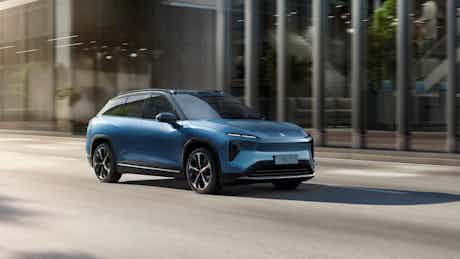Car changing is a big deal
- 73% of dealers said they think Chinese manufacturers will capture up to 10% of UK car sales in the next year
- One in 10 of the car buyers we polled recently said they associate Chinese cars with ‘more and better’ technology
- Chinese brands already make up 60% of global electric vehicle sales
For anyone still in doubt that Chinese carmakers will make a lasting footprint on the UK car market in the not-so-distant future, let me assure you; their ascendance is imminent.
Chinese brands already dominate the fast-growing electric vehicle (EV) market with 60% of global sales. However, UK dealer sentiment towards Chinese brands is varied.
In a recent carwow survey, 73% of dealers said they think Chinese manufacturers will capture up to 10% of UK car sales in the next year, while one in three believe they’ll hold a 21-30% market share within the next five years.
Meanwhile, just one in five (20%) said they feel they currently know enough about Chinese carmakers and their plans for the UK market.
So, what is carwow seeing Chinese OEMs doing?
1. Leveraging dealer relationships to establish themselves
Everything suggests that most Chinese OEMs setting their sights on the UK new car market will operate in partnership with UK dealers, either by establishing new franchise networks or through an agency model. With little or no brand profile, Chinese OEMs will want to leverage dealers’ relationships and reputations to alleviate any concerns and be available to deliver aftersales support.
2. Using the fleet market to test and learn at scale
Chinese counterparts see fleet sales as a way to give them the opportunity to increase brand visibility, and even conduct real-world field testing of in-car technologies. By entering the fleet market, they can gather feedback and refine technologies through over-the-air updates, a strategy commonly used by Chinese consumer technology brands.
3. Investing early to keep a handle on costs
Chinese OEMs are years ahead of Western brands in terms of EV-specific supply chains. BYD invested in lithium mining back in 2011, allowing it to reach economies of scale faster and reduce manufacturing costs.
It takes 11 years to build a lithium mine, and, given the battery of an EV can account for up to 40% of the cost, securing a stable supply of lithium is crucial for competitive pricing.
4. Developing an understanding of UK consumer motivations
Chinese OEMs are capable of offering lower priced EVs. But, beyond price, one in 10 of the car buyers we polled recently said they associate Chinese cars with ‘more and better’ technology.
When asked what would persuade them to consider a Chinese car, one in five (21%) of car buyers said they wanted ‘more time’, indicating they want to build up more familiarity with and trust in the new Chinese brands as they establish themselves over the next few years.
A lack of familiarity with Chinese brands was cited by 28% of drivers as a reason to not consider a Chinese car.
Chinese brands will succeed in the UK
With the 2030 deadline on ICE cars looming, it’s clear that the Chinese OEMs have the products, the resources and the will to succeed in the UK.
Our consumer research shows that they’ll need to focus on establishing a strong brand presence and foster the trust, loyalty, and purchasing power of British consumers.
As the Korean marques will attest, winning over the UK consumer takes time and accessible pricing is necessary to secure a foothold. Will they demonstrate the same patience that’s worked for Korean competitors? We’ll have to wait and see!
